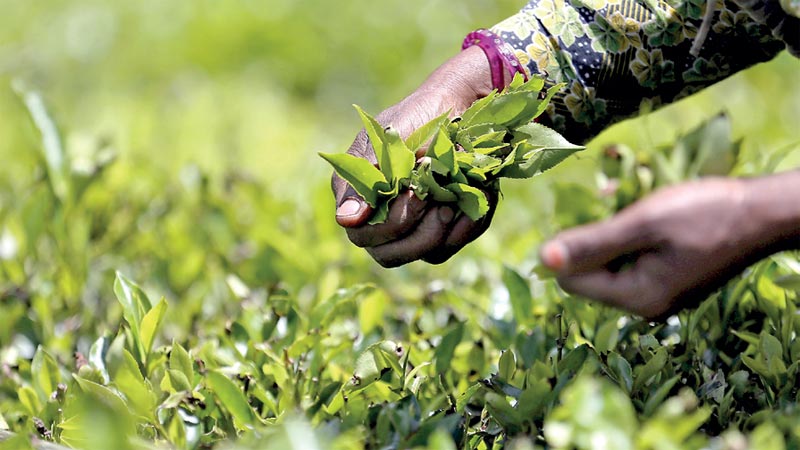Wednesday Feb 18, 2026
Wednesday Feb 18, 2026
Monday, 18 October 2021 04:56 - - {{hitsCtrl.values.hits}}

By Charumini de Silva
|
Plantation Industries Minister Dr. Ramesh Pathirana
|
The besieged tea industry is to get a last-minute lifeline with the import of a critical source of nitrogen, albeit on an interim basis, amidst a chemical fertiliser ban that has threatened crop yield and export income.
Plantation Industries Minister Dr. Ramesh Pathirana yesterday confirmed to the Daily FT that 100,000 tons of sulphate of ammonia (SOA) would be imported to support the $ 1.3 billion foreign exchange-earning tea sector, which has been reeling from the sudden and haphazard ban on chemical fertiliser.
“It has been decided to import SOA as the best source of nitrogen to be used for the tea industry,” the Minister told the Daily FT, adding that the said quantity would be made available within the next six weeks.
The tea industry has been waiting for many months without nitrogen nutrients for its plantations and nurseries, as authorities took time to decide between SOA and nano nitrogen fertiliser.
Prior to the Government policy decision to ban chemical fertiliser, the tea industry used to import around 200,000 tons of urea fertiliser.
The Minister noted that the decision to import SOA was only an interim relief measure to safeguard the tea industry until authorities are able to settle on a sustainable organic fertiliser solution.
“This measure is only to control the situation in this transitional period,” Dr. Pathirana stressed.
Plantation Industries Ministry Secretary Raveendra Hewavitharana said they were in the process of conducting adaptive trials with the support of the Tea Research Institute (TRI).
There are 39 companies that are into organic fertiliser manufacturing and 18 are specialised in producing nutrients for tea – of which 10 are now doing adaptive research to find solutions to cater to micronutrient demands in the tea industry.
“The purpose of the application of organic fertiliser is not about soil conditioning, but as a sustainable nutrient for the tea bushes and nurseries,” he explained.
Hewavitharana pointed out that, despite the know-how and technology, most of these companies do not have the necessary capacity to cater to the demand. He however noted that Sri Lanka does have sufficient dolomite and phosphate nutrients available for the tea industry.
Warning of far-reaching implications from the chemical and agrochemicals ban, and the shortage of suitable fertiliser, the Planters’ Association of Ceylon (PA) recently urged the Government to immediately take a sensible decision to save the industry and the economy.
It said fertiliser cost was merely 2% of the total earnings from tea exports. “We spend about $ 30 million to import fertiliser, but we earn at least $ 1.3 billion,” the PA stressed.
